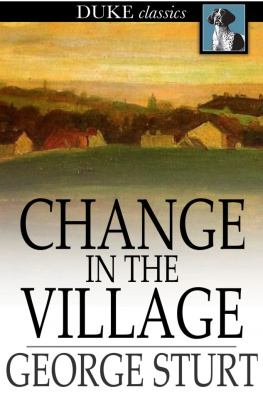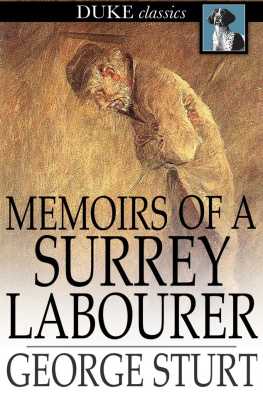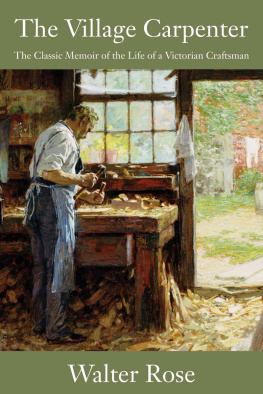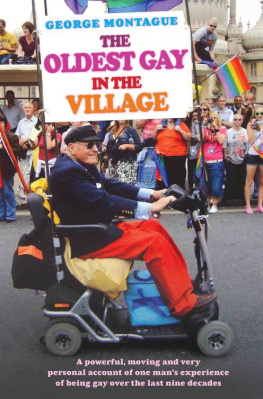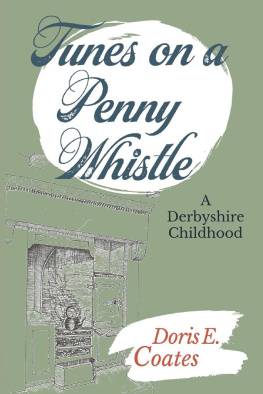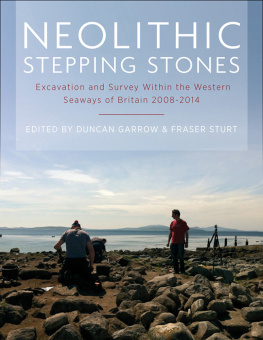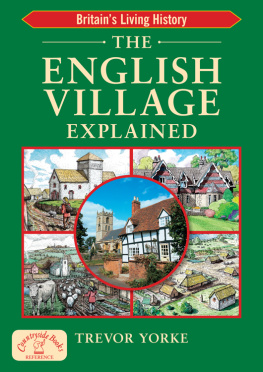George Sturt - Change in the Village
Here you can read online George Sturt - Change in the Village full text of the book (entire story) in english for free. Download pdf and epub, get meaning, cover and reviews about this ebook. year: 2013, publisher: Duke Classics, genre: Detective and thriller. Description of the work, (preface) as well as reviews are available. Best literature library LitArk.com created for fans of good reading and offers a wide selection of genres:
Romance novel
Science fiction
Adventure
Detective
Science
History
Home and family
Prose
Art
Politics
Computer
Non-fiction
Religion
Business
Children
Humor
Choose a favorite category and find really read worthwhile books. Enjoy immersion in the world of imagination, feel the emotions of the characters or learn something new for yourself, make an fascinating discovery.
- Book:Change in the Village
- Author:
- Publisher:Duke Classics
- Genre:
- Year:2013
- Rating:3 / 5
- Favourites:Add to favourites
- Your mark:
- 60
- 1
- 2
- 3
- 4
- 5
Change in the Village: summary, description and annotation
We offer to read an annotation, description, summary or preface (depends on what the author of the book "Change in the Village" wrote himself). If you haven't found the necessary information about the book — write in the comments, we will try to find it.
A massive influx of wealth and the emergence of a new class of nouveau riche industrialists and tycoons began to change the social structure of Britain in the early twentieth century. George Sturt, a craftsman and writer, documents the transition in this insightful series of essays on the changes that began to transpire in his own small village during the period, upending hundreds of years of tradition in the process.
Change in the Village — read online for free the complete book (whole text) full work
Below is the text of the book, divided by pages. System saving the place of the last page read, allows you to conveniently read the book "Change in the Village" online for free, without having to search again every time where you left off. Put a bookmark, and you can go to the page where you finished reading at any time.
Font size:
Interval:
Bookmark:

First published in 1912
ISBN 978-1-62013-378-1
Duke Classics
2013 Duke Classics and its licensors. All rights reserved.
While every effort has been used to ensure the accuracy and reliability of the information contained in this edition, Duke Classics does not assume liability or responsibility for any errors or omissions in this book. Duke Classics does not accept responsibility for loss suffered as a result of reliance upon the accuracy or currency of information contained in this book.
To
MY SISTERS
If one were to be very strict, I suppose it would be wrong to give thename of "village" to the parish dealt with in these chapters, becauseyour true village should have a sort of corporate history of its own,and this one can boast nothing of the kind. It clusters round no centralgreen; no squire ever lived in it; until some thirty years ago it waswithout a resident parson; its church is not half a century old. Nor arethere here, in the shape of patriarchal fields, or shady lanes, orvenerable homesteads, any of those features that testify to theimmemorial antiquity of real villages as the homes of men; and this fora very simple reason. In the days when real villages were growing, ourvalley could not have supported a quite self-contained community: itwas, in fact, nothing but a part of the wide rolling heath-countrythe"common," or "waste," belonging to the town which lies northwards, in amore fertile valley of its own. Here, there was no fertility. Deep downin the hollow a stream, which runs dry every summer, had prepared astrip of soil just worth reclaiming as coarse meadow or tillage; but thestrip was narrowa man might throw a stone across it at somepointsand on either side the heath and gorse and fern held their ownon the dry sand. Such a place afforded no room for an English village ofthe true manorial kind; and I surmise that it lay all but uninhabiteduntil perhaps the middle of the eighteenth century, by which time a few"squatters" from neighbouring parishes had probably settled here, tomake what living they might beside the stream-bed. At no time,therefore, did the people form a group of genuinely agriculturalrustics. Up to a period within living memory, they were an almostindependent folk, leading a sort of "crofter," or (as I have preferredto call it) a "peasant" life; while to-day the majority of the men, nolonger independent, go out to work as railway navvies, builders'labourers, drivers of vans and carts in the town; or are more casuallyemployed at digging gravel, or road-mending, or harvesting andhay-making, or attending people's gardens, or laying sewers, or in factat any job they can find. At a low estimate nine out of every ten ofthem get their living outside the parish boundaries; and this fact byitself would rob the place of its title to be thought a village, in thestrict sense.
In appearance, too, it is abnormal. As you look down upon the valleyfrom its high sides, hardly anywhere are there to be seen threecottages in a row, but all about the steep slopes the little meandwelling-places are scattered in disorder. So it extends east and westfor perhaps a mile and a halfa surprisingly populous hollow now,wanting in restfulness to the eyes and much disfigured by shabby detail,as it winds away into homelier and softer country at either end. Thehigh-road out of the town, stretching away for Hindhead and the SouthCoast, comes slanting down athwart the valley, cutting it into "Upper"and "Lower" halves or ends; and just in the bottom, where there is abridge over the stream, the appearances might deceive a stranger intothinking that he had come to the nucleus of an old village, since adilapidated farmstead and a number of cottages line the sides of theroad at that point. The appearances, however, are deceptive. I doubt ifthe cottages are more than a century old; and even if any of them have agreater antiquity, still it is not as the last relics of an earliervillage that they are to be regarded. On the contrary, they indicate thebeginnings of the present village. Before them, their place wasunoccupied, and they do but commemorate the first of that series ofchanges by which the valley has been turned from a desolate wrinkle inthe heaths into the anomalous suburb it has become to-day.
Of the period and manner of that first change I have already given ahint, attributing it indefinitely to a slow immigration of squatterssomewhere in the eighteenth century. Neither the manner of it, however,nor the period is material here. Let it suffice that, a hundred yearsago or so, the valley had become inhabited by people living in the"peasant" way presently to be described more fully. The subject of thisbook begins with the next change, which by and by overtook these samepeople, and dates from the enclosure of the common, no longer ago than1861. The enclosure was effected in the usual fashion: a few adjacentlandowners obtained the lion's share, while the cottagers came in forsmall allotments. These allotments, of little use to their owners, andin many cases soon sold for a few pounds apiece, became the sites of thefirst few cottages for a newer population, who slowly drifted in andsettled down, as far as might be, to the habits and outlook of theirpredecessors. This second period continued until about 1900. And now,during the last ten years, a yet greater change has been going on. Thevalley has been "discovered" as a "residential centre." A water-companygave the signal for development. No sooner was a good water-supplyavailable than speculating architects and builders began to buy upvacant plots of land, or even cottagesit mattered little whichandwhat never was strictly speaking a village is at last ceasing even tothink itself one. The population of some five hundred twenty years agohas increased to over two thousand; the final shabby patches of the oldheath are disappearing; on all hands glimpses of new building and rawnew roads defy you to persuade yourself that you are in a country place.In fact, the place is a suburb of the town in the next valley, and theonce quiet high-road is noisy with the motor-cars of the richerresidents and all the town traffic that waits upon the less wealthy.
But although in the exactest sense the parish was never a village, itsinhabitants, as lately as twenty years ago (when I came to live here)had after all a great many of the old English country characteristics.Dependent on the town for their living the most of them may have been bythat time; yet they had derived their outlook and their habits from theearlier half-squatting, half-yeoman people; so that I found myselfamongst neighbours rustic enough to justify me in speaking of them asvillagers. I have come across their like elsewhere, and I am notdeceived. They had the country touch. They were a survival of theEngland that is dying out now; and I grieve that I did not realize itsooner. As it was, some years had passed by, and the movement by which Ifind myself living to-day in a "residential centre" was already faintlystirring before I began to discern properly that the earliercircumstances would repay closer attention.
They were not all agreeable circumstances; some of them, indeed, were somuch the reverse of agreeable that I hardly see now how I could everhave found them even tolerable. The want of proper sanitation, forinstance; the ever-recurring scarcity of water; the plentiful signs ofsqualid and disordered livinghow unpleasant they all must have been!On the other hand, some of the circumstances were so acceptable that, torecover them, I could at times almost be willing to go back and endurethe others. It were worth something to renew the old lost sense ofquiet; worth something to be on such genial terms with one's neighbours;worth very much to become acquainted again at first hand with thecustoms and modes of thought that prevailed in those days. Here at mydoor people were living, in many respects, by primitive codes which havenow all but disappeared from England, and things must have beenfrequently happening such as, henceforth, will necessitate journeys intoother countries if one would see them.
Font size:
Interval:
Bookmark:
Similar books «Change in the Village»
Look at similar books to Change in the Village. We have selected literature similar in name and meaning in the hope of providing readers with more options to find new, interesting, not yet read works.
Discussion, reviews of the book Change in the Village and just readers' own opinions. Leave your comments, write what you think about the work, its meaning or the main characters. Specify what exactly you liked and what you didn't like, and why you think so.

